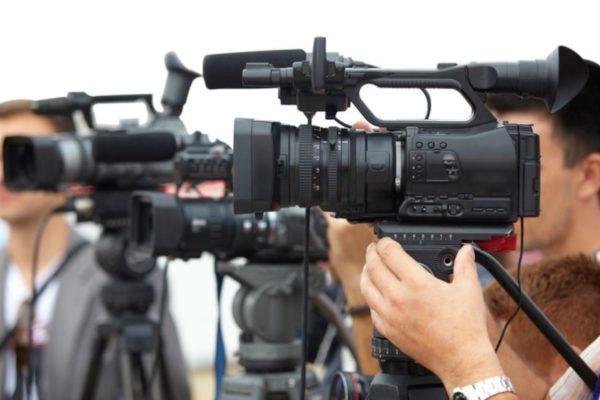Somewhere in my memento box I have a piece of wire copy, the paper kind, announcing a news flash from the 1980s. I was a young TV reporter in the days before the internet, and that’s how big news arrived: on a machine that clicked out wire service reports. I saved that slip of paper to remember the time when I, as a journalist, sat on the front row to history. I was among the privileged gatekeepers.
That front row is gone.
There’s more news on your phone at this very moment than we ever had on our rolls of cheap paper. Odds are you read it in bits and pieces instead of a concentrated sit-down with the newspaper or TV newscast. Odds are also that you are sifting through your social media feed, sharing items and posting your own news or opinion. You’ve become a gatekeeper too.
Anytime you decide what to share, you’re doing the work of a news editor. Anytime you post news you witness, you’re working as a reporter. When you comment, you’re a pundit in your own world.
And while you may think that world is limited to an approved circle of acquaintances in your Facebook or Twitter account, think about the people who’ve lost their jobs, been humiliated or achieved worldwide fame for a post that has gone viral.
Our national conversation about policing, privacy and electoral campaigns has been influenced by citizen contributions outside what used to be the normal news gatekeeping process.
We are all gatekeepers now, but we’re living in a paradox. We spend more time with media than ever before – about 12 hours a day in the U.S., according to eMarketer. Yet, the Pew Research Center reports that only about 1 in 5 of us have “a lot” of trust in news media. Trust in social media is even lower, at 14 percent.
What does this mean for our society?
There are three simple things every one of us can do to foster trust and improve the quality of our online information environment: First, seek the best information. Second, speak truthfully. Third, serve the larger good. Some of these ideas probably seem like familiar moral principles. They should, and they are oversimplified ideas from media codes of ethics, but these three simple reminders are a good start.
Seeking the best information means reading and supporting news organizations, citizen groups or advocacy organizations that are transparent about their information gathering. Do they rely on first-hand witnessing and original documents? Do they have a code of ethics? Issue corrections? Name their sources, offer facts and context? Or is the article a second- or third-hand analysis far-removed from its original fact gathering?
Speaking truthfully may seem obvious, but consider how easy it is to hit the “share” button and then it’s easy to see why we accidentally spread the news of celebrity deaths years after they’ve already happened, or a meme that tickles our funny-bone even though its information is inaccurate.
That’s why the third rule calls for serving the larger good.
Before people hit “share,” they ask themselves whether what they’re passing on helps or hurts the democratic conversation. Demand sources for charts and arguments, especially the ones that serve your personal political beliefs. Ask yourself whether that funny meme denigrates other people based on their race, ethnicity or gender. If you wouldn’t tell that sort of joke at the office or your church picnic, why pass it along to a presumably larger audience online?
We are all gatekeepers now, whether we like it or not. Our online lives are connected to our real ones. We can use our smartphones and social media accounts to feed our American ideals or we can undermine them. To borrow a phrase from Walt Kelly’s classic Pogo comic strip: We have met the media, and the media are us.
Mary Bock is an assistant professor of journalism in the Moody College of Communication at The University of Texas at Austin.
A version of this op-ed appeared in the San Antonio Express News, Fort Worth Star Telegram, Mcallen Monitor, and the Rio Grande Guardian.
To view more op-eds from Texas Perspectives, click here.
Like us on Facebook.




